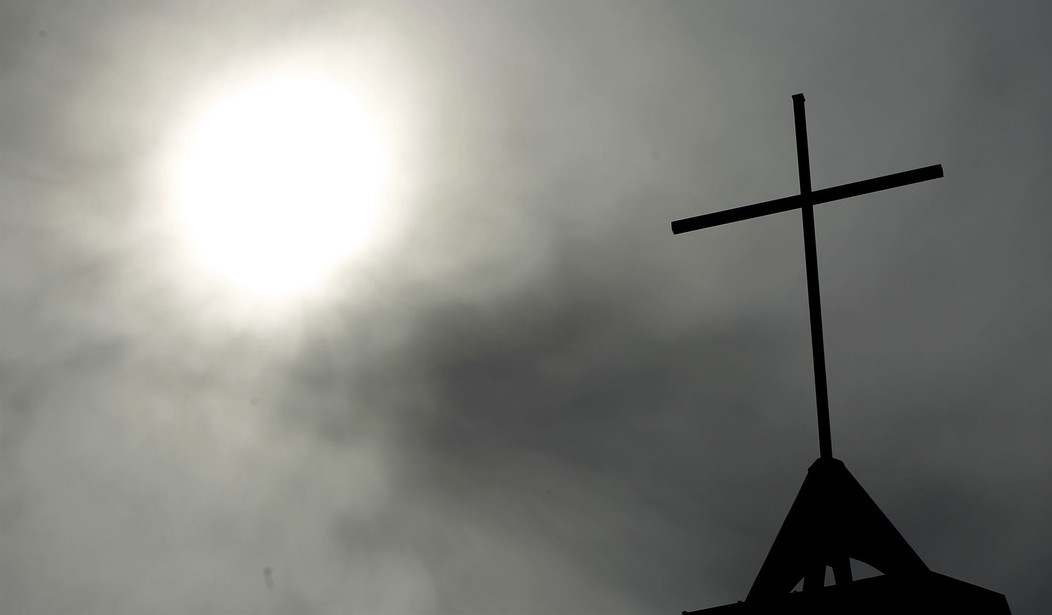It’s not unusual for Christian churches to change over time. Faith leaders within their denominations gather periodically to contemplate issues related to doctrine, and discussions often involve how to interpret the Bible and apply it to their practices.
But something corrosive happens when this interpretation is colored by political or social ideologies. Rather than earnestly discussing the nature of biblical truth and how to exercise it, the process becomes tainted by transient secular influences.
We see it today in the United Methodist Church and the current politics of sexuality. The politics of taxation and redistribution of wealth is percolating through the Roman Catholic Church. The World Council of Churches is calling for “climate justice.”
The Bible already provides lessons and laws regarding sexuality. It instructs us on charity and taxes and stewardship of the Earth, and Bible-believing people tend to abide by scripture on these and other matters. But in the aforementioned examples, these church bodies are warping biblical precepts with popular political and cultural activism.
These shifts from the scriptural to the secular aren’t new. Recent history provides many examples of how churches have diluted or disregarded traditional doctrine to accommodate the political whims of the day.
Churches across Germany modified their practices to affirm the emerging political powers of the 1920s and 1930s. The 1920 Nazi Party platform declared, "We demand the freedom of all religious confessions in the state,” but included the proviso that religious freedoms were permitted, “insofar as they do not jeopardize the state's existence or conflict with the manners and moral sentiments of the Germanic race.”
Recommended
German churches that aligned with the politics of that era mostly got along just fine. But many who did not accept this political secularization were arrested and jailed. Some were sent to concentration camps or simply executed.
Churches in the Soviet Union were not technically outlawed, and many that cozied up to the state were allowed to minister to their congregations. But those deemed too counterrevolutionary were targets of persecution. As a core component of Soviet communism, state atheism was aggressively implemented by institutions like The League of the Militant Godless.
Writing in Religion & Politics, Gene Zubovich illustrated the maltreatment of Russian churches. “Officials found ways of shutting them down, and they transformed some of them into cathedrals of atheism. The Donskoi Monastery became the Moscow Antireligious Museum and the Kazan Cathedral in Leningrad (today, St. Petersburg) became the Museum of the History of Religion. In 1931, Moscow’s Christ the Savior Cathedral was blown up in a public display for all the world to see.”
In China, the Communist Party seeks to separate the church from its faith. “Churches split into ‘patriotic’ associations, officially sanctioned if frowned upon,” writes Azeem Ibrahim in Foreign Policy. “Unrecognized denominations’ status ranged, depending on the government’s mood, from fully underground to operating openly but cautiously.”
This caution is justified. The Roman Catholic Church struck a bargain with the CCP in 2018 to protect underground churches but unsurprisingly, the government isn’t inclined to abide by the deal. Today, the government surveils churches and has imprisoned many thousands of people of faith for not toeing the Chinese Communist Party line.
Earlier this year in America, the FBI suggested surveillance and undercover infiltration of Roman Catholic churches in Virginia. They were suspected of conducting mass in Latin, a tradition dating back to 1570. American leftists are also agitating to have the Bible classified as hate speech.
Religious persecution in outright tyrannies is terrifying and not likely to reach such extremes in the United States anytime soon. But when the basis of a 2,000 year old faith is denounced as hate and churches are suspect over the language spoken in their liturgy, we all should be very concerned about what happens next.
Mark Twain observed, “History doesn’t repeat itself but it often rhymes,” and the lessons of history are clear; bad things can happen to churches that push back against the state. To paraphrase Made Guys in the protection racket, “That’s a nice little church you got there. Be a shame if anything happened to it.” Small wonder churches are secularizing their doctrine.
When Thomas Jefferson wrote about “building a wall of separation between the church and state,” he was not talking about keeping religion out of the public sphere as leftists and atheists claim. Jefferson was referring to a wall that protects the church - in this case, the Danbury, Connecticut Baptist Association - from persecution by the state.
It is obscene when American churches are pressured into altering doctrine to ingratiate themselves to the state or the culture, or to protect themselves from government abuse. When churches have to ‘go along to get along,’ it’s a corruption of faith. Scripture instructs Christians and Jews to fear God but it’s a travesty when they must also fear government and the culture it promotes.

























Join the conversation as a VIP Member